Description
ABSTRACT
An Evaluation of the Application of Private Law to Recovery of Bribes in Nigeria
John Omughele*
The usual approach to the problem of bribery is to employ public law, through criminal law, against bribe-takers. This paper highlights the limitations of this approach and urges that as in the United Kingdom, Nigeria can also employ private law to recover bribes and accretions to bribes from bribe-takers, using the concept of fiduciaries as a unifying basis for both public and private sector bribery cases as well as imposition of constructive trusts. It reviews landmark decisions of the United Kingdom Supreme Court and the Privy Council in this regard and maintains that Nigeria’s anti-corruption war will profit from the use of public and private law and not the former alone.
Keywords: Drug Offences, Chemist’s Report, Admissibility, Analyst.
INTRODUCTION
Nigerian public officers have been involved in many bribery scandals such as the infamous Halliburton and Siemens bribery scandals. The Halliburton scandal concerned the alleged payment of over $180 million to senior Nigerian officials, including, allegedly, past heads of states, by officials of an American firm, Halliburton, to secure a construction contract for a liquefied natural gas plant in Bonny Island in the Niger Delta.1 Although several foreigners involved in the matter have been prosecuted in their home countries, Nigerian authorities have failed to prosecute the country’s citizens involved in the matter. In the Siemens bribery scandal, Siemens, the German company which became notorious worldwide for bribery, paid about €10 million in bribes to Nigerian public officers said to be an immigration official, a senator and four former telecommunications ministers to win lucrative telecommunication contracts.2
Scandals like these and routine bribery in the conduct of government and private businesses result in a very low rating for Nigeria in Transparency International’s Corruption Perception Index. For 2016 Nigeria ranked 136th out of 176 countries rated. The organization noted that “the lower-ranked countries in our index are plagued by badly functioning public institutions… People frequently face situations of bribery and extortion”.3
THE PROBLEM OF REMEDYING BRIBERY IN ITS LEGAL PERSPECTIVE
Legal systems have mainly focused on dealing with the problem of bribery through the criminal law which is an aspect of public law without giving equal attention to the use of private law. Article 15 of the United Nations Convention against Corruption 2003 and Articles 4 and 5 of the African Union Convention on Preventing and Combating Corruption 2003 stipulate criminalisation of bribery by member states.4 In the United Kingdom for instance, there is the Bribery Act 20105 which in its 20
* LL.B (Benin), LL.M (ABU). Doctoral candidate, Department of Commercial Law, Ahmadu Bello University, Zaria
- Bamgboye, A., (2016) ‘FG orders Fresh Review of Halliburton Case’ Daily Trust. accessed 8 May 2017.
- Crawford D. & Esterl M., ‘Siemens Ruling Details Bribery across the Globe’ 2007 Wall Street Journal accessed 25 August 2016.
- Corruption Perceptions Index, 2016 accessed 24 July 2017.
- United Nations, (2005) ‘Compendium of Legal Instruments on Corruption’ (2nd edition, New York) 21 and 116.
- ‘Bribery Act, 2010’ accessed 24 July 17.

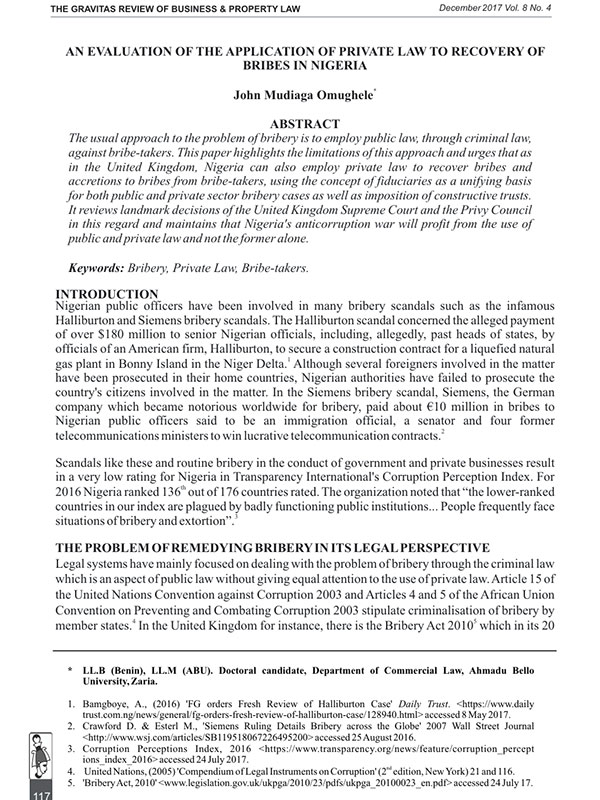
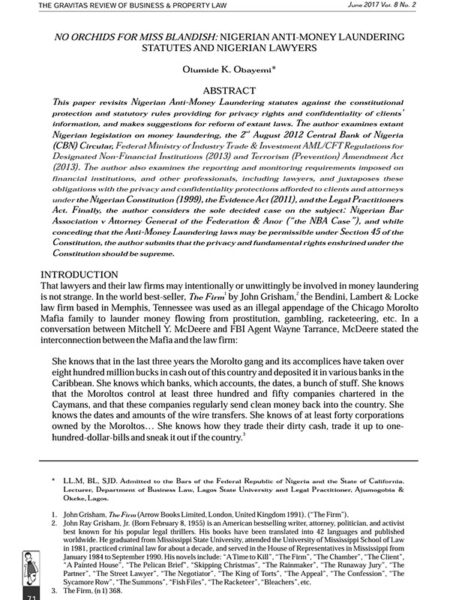
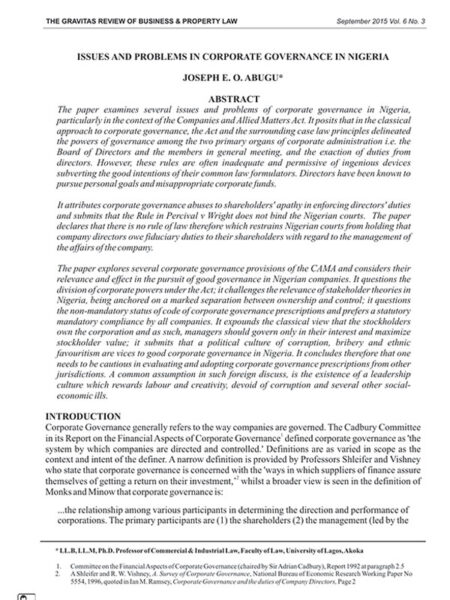
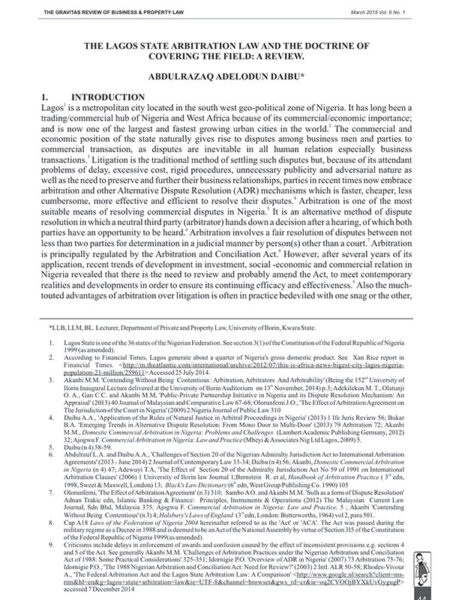
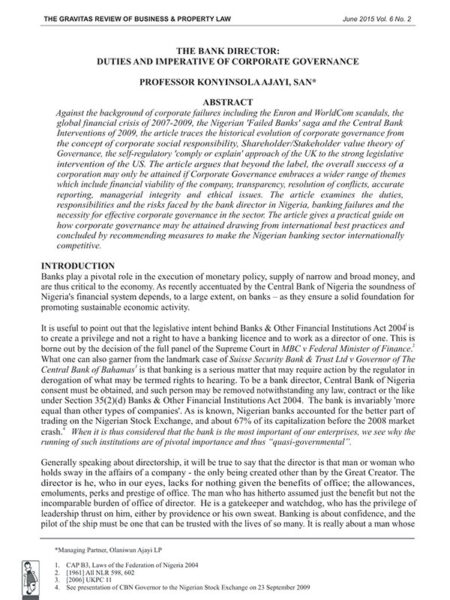


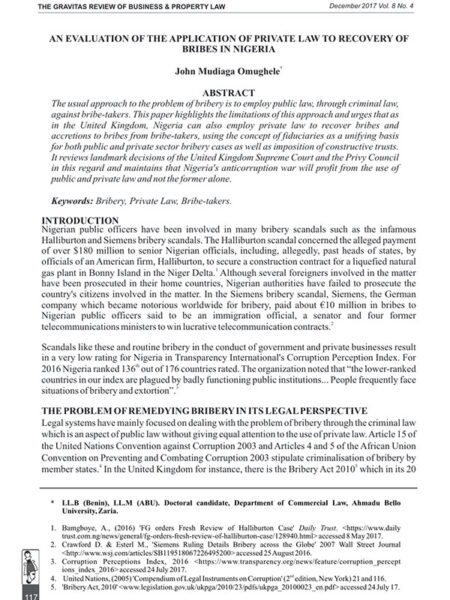
Reviews
There are no reviews yet.